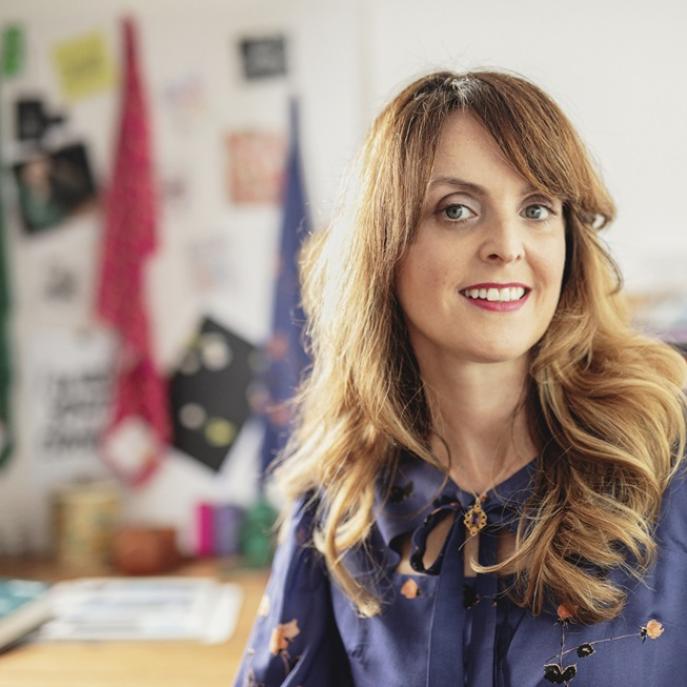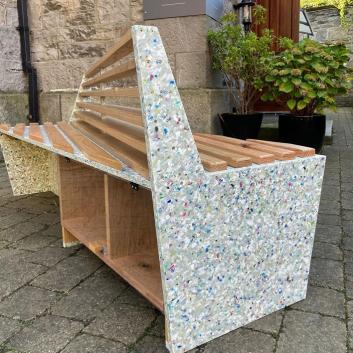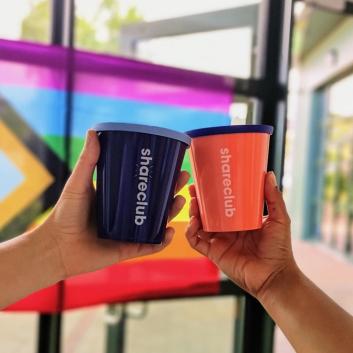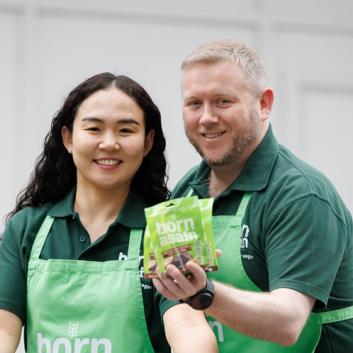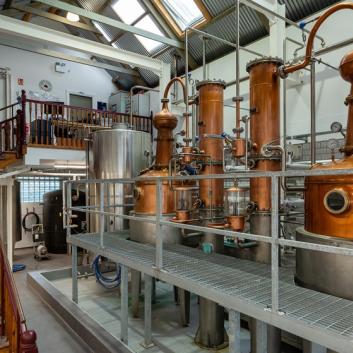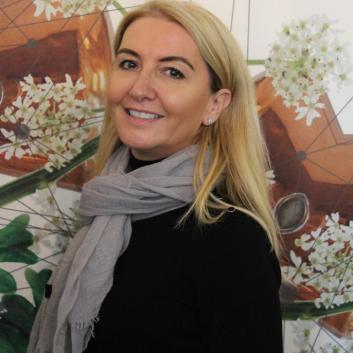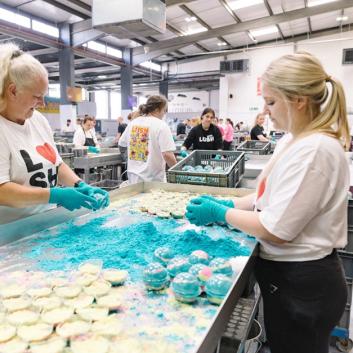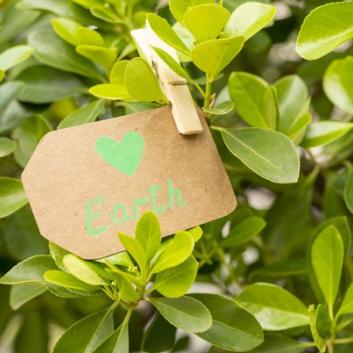Challenging the fast fashion machine and shifting mindsets
This article is part of the 'Celebrating Circular` initiative and story collection that spotlights trailblazer Irish businesses making strides towards a more sustainable and low-carbon economy.
The fashion industry is infamous for exploiting natural and human resources and is estimated to be responsible for 10% of global carbon emissions, more than international flights and maritime shipping combined.
Textile production alone is causing 20% of water pollution globally while using clean water supplies on a massive scale. According to an EU report, producing one cotton t-shirt requires about 2,700 litres of fresh water, which would be enough to meet one person’s drinking needs for 2.5 years.
The list of environmental and ethical issues that need to be addressed in the fashion industry could go on, raising the question of whether we can really change all of them.
Launching an ethical circular fashion brand
Sandra Murphy has over two decades of experience in the global fashion industry, including working as a designer for various leading American fashion brands such as Victoria’s Secret, Gap and Hanes while running her own small independent label while living in New York.
“I’ve seen how mass production works and also did boutique scale design, learning from both sides, which inspired me to search for ways to improve things.”
After 16 years of fast-paced New York life, she returned to Ireland determined to start with a blank canvas and launch a fashion brand that would reflect her learnings and values.
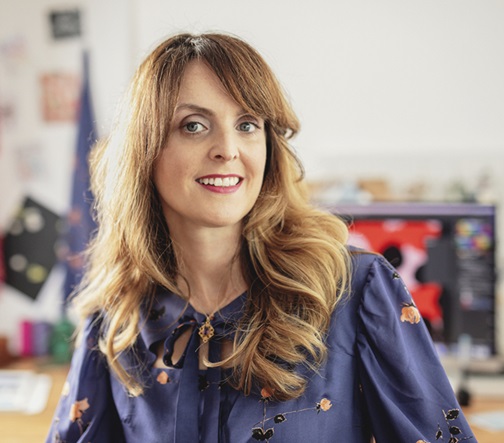
“My question was how to challenge a system that has been working in a specific way for decades."
Exploring circular and sustainability angles relentlessly
She started to explore every angle of creating a brand and product that is entirely circular and sustainable, looking at aspects from selecting garments to design, manufacturing and logistics.
“I found that small things like removing a plastic tag from the garment can make a difference, and using ethical and sustainable certified materials are not making production drastically more expensive.”
Even naming her business AFORE AFTER encapsulates her commitment to considering the before-and-after stages and moving away from the linear thinking that only focuses on the before part but ignores what happens with an item after its use.
Admittedly, Sandra is still figuring out how to make her business completely sustainable, but she has already created some groundbreaking solutions.
Dealing with the complexity of garments
In her quest to use a genuinely sustainable material, she realised that the complexity of garments is an issue when it comes to recycling.
This motivated Sandra to design the ETERNAL, a synthetic-free, mono-material and biodegradable garment with zero post-consumer waste that practically can remove all technical necessity for plastic and polyester materials, delivering a truly recyclable solution.
Besides material innovation, she spotted another opportunity to fight the throwaway culture and create a circular clothing option.
So, she came up with a creative design for the ETERNAL collection that would allow this clothing to be styled in 12 different ways, expanding the use of the same piece.
“If we’re going to move away from fast fashion, every single item in our wardrobe needs to work harder. I wanted to challenge the idea that a garment can only serve one or two purposes.”
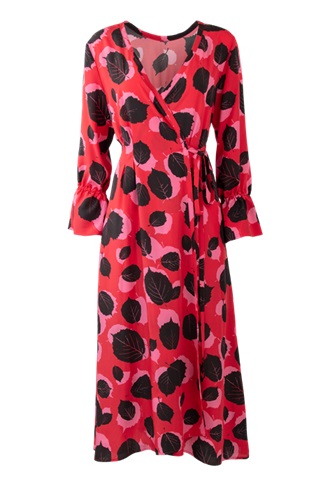
The power of exchanging ideas and experiences
Sandra is keen to learn and expand her horizons, so it was a no-brainer for her to join the MODOS circular business course.
“I was probably more prepared from the circular economy point of view, but other areas like communication and customer engagement were certainly less known to me, and the course provided an excellent insight into these areas. Working with a mentor also helped a lot in translating what I learned into everyday situations.”
Another valuable part for her was that she could exchange ideas and experiences with other businesses.
She recalls that managing sustainable packaging was a common issue for everyone in her group, regardless of their sectors.
“I decided to use paper packaging and eliminate plastic completely. I use a solution that I call a “bagvelope”, which is a mix between a delivery bag and an envelope.
I prefer this even if it means that sometimes I have to take a return due to delivery damage from rain.”
Sandra learned unexpected things during the MODOS course, and she says that no matter what level you are at, there will be something you can take from this learning experience.
There’s no copy-paste solution for a sustainable, circular business
“Sustainability in general is not figured out. You can’t blindly follow and adopt a model like a copy-paste solution. There’s a learning curve in this for everyone.”
Sandra says there's a lot to do in not just educating businesses but consumers, especially when it comes to fashion.
"When you buy an organic banana, you know exactly what that means.
But when you say sustainability in fashion, it can mean many things, and you should definitely look beyond using recycled materials, not to mention anything about production or other areas.
However, limited knowledge and a lack of transparency make greenwashing and influencing people easy enough.”
The additional hurdle of shifting mindsets
She adds that due to the complexity of fashion and the massive communication budget, big brands spend on “brainwashing” people to keep buying new stuff, making it very difficult to change how things work.
“I have a strict transparency policy so my buyers can see exactly what makes up the pricing.”
Sandra plans to build her business on the two pillars of product innovation and knowledge sharing, addressing both raising awareness and providing a solution to make fashion more sustainable.
Explore other inspirational stories as part of the Celebrating Circular initiative supported by the Regional Waste Management Planning Offices and Dublin City Council.






